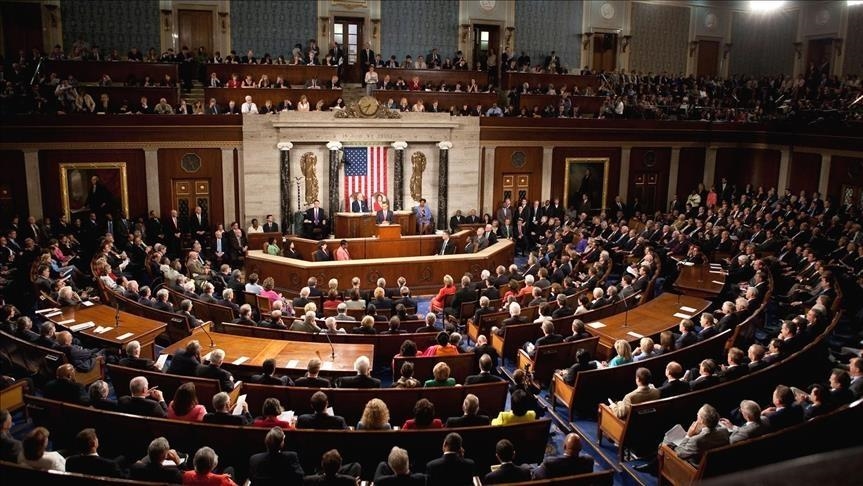As DC slogs through the dog days of summer, we’re hearing foreign diplomats are still glued to the news on President Trump’s 940-page Big, Beautiful Bill now in the Senate.
But stifle that yawn, dear Intriguer. Here’s why the embassies are firing off those cables:
- Defense spending
Sure, capitals are interested in the big picture (what kind of military the US wants), the medium-zoom (how DC will pay for it), but also the pixels up close (specific capabilities).
Stay on top of your world from inside your inbox.
Subscribe for free today and receive way much more insights.
Trusted by 129,000+ subscribers
No spam. No noise. Unsubscribe any time.
And those pixels have direct implications for how the US engages with the world, whether it’s the $25B for a new Golden Dome missile defence shield (inevitably prompting new thinking among rivals), or signals on where the US wants to focus its might (the Indo-Pacific gets all the attention in this bill, with nada new for Europe or the Middle East).
But here’s one other quick pixel:
Shipbuilding alone gets four whole pages on (say) how much rolled steel to buy for subs. And while that’s principally about the US lifting its own naval game (a leaked memo once flagged China’s shipbuilding capacity as 232 times America’s), allies are counting on it too:
- The AUKUS (🇦🇺🇬🇧🇺🇸) defence tech pact, for example, hinges Australia’s future nuclear-powered subs on the US meeting its own sub needs, hence the Aussies investing in US shipyards, even as the White House reviews the underlying pact.
- AI rules
Remember waaaaay back at February’s AI summit in Paris, when the US and the UK declined to sign the joint text out of concern it’d “kill a transformative industry just as it’s taking off”? Well that same debate is now playing out back at the US state-federal level, with this bill aiming to stop states from passing their own AI rules for the next few years.
That’s one reason why several members of the president’s own party have been holding out — in addition to AI’s big questions around how to balance safety with progress, this part of the bill also touches on deep-seated US debates around state rights. And sure enough, just moments ago, that part of the bill just got voted down, 99-1.
- The energy race
US lawmakers are also trying to find savings, including among the renewable energy incentives passed under President Biden, which critics argue saw DC fire-hosing too much cash at an elitist agenda.
But supporters say this help was key to wrestling back the solar supply chain dominated by China, which built more solar last year than the US did over the past quarter of a century. And yet the draft bill now phases out support for solar (though not fossil fuels), while leaving or worsening its hurdles (US solar prices are already 5x the rest of the world).
- The revenge tax
And while there’s always debate around what ends up in a bill, many gave a big sigh of relief that something got left on the cutting room floor: Treasury Secretary Bessent ditched Section 899 (the ‘revenge tax’), noting it was no longer necessary because he’d negotiated with the G7 to just exempt US firms from the OECD’s 15% global minimum tax.
That OECD measure is meant to stop multinationals playing capitals off against each other in a tax-race to the bottom, though some of the biggest tax hits would’ve been to US firms. The proposed US revenge tax had spooked markets and investors given the uncertainty around the details and impacts, but it’s now gone — hence the sigh of relief.
Intrigue’s Take
You might’ve noticed some congressional urgency to meet President Trump’s July 4th deadline, and for a legislative body not exactly known for its agility, it’s worth a quick look at why: POTUS wants a) an early win, b) party unity, c) pre-midterm momentum, and d) tactical leverage to get moderates in line towards aims a through c above.
And sure, the tight margins in each chamber mean the White House doesn’t have a lot of wriggle room to play with here. But that pressure works both ways: asking too many questions on a razor-thin vote might just get you primaried.
But zooming out, what does all this reveal about the US and its place in the world? Of course, those foreign embassies will be looking for signals on the above substance, whether around America’s trajectory on defence, AI, energy, tax, or beyond.
But they’ll also be looking for signals in amongst the process: a degree of chaos, inefficiency, and even dysfunction is baked into what’s long made America’s democracy relatively resilient and adaptive over the years.
But there’s a shifting equilibrium among it all, and foreign capitals will be watching to understand where it lands this time around on the chaos vs progress spectrum.
Sound smarter:
- Tesla shares are down over 5% in pre-market trading after President Trump hinted the US would save a “fortune” by cutting government subsidies that benefit the companies of his erstwhile ally, Elon Musk.









